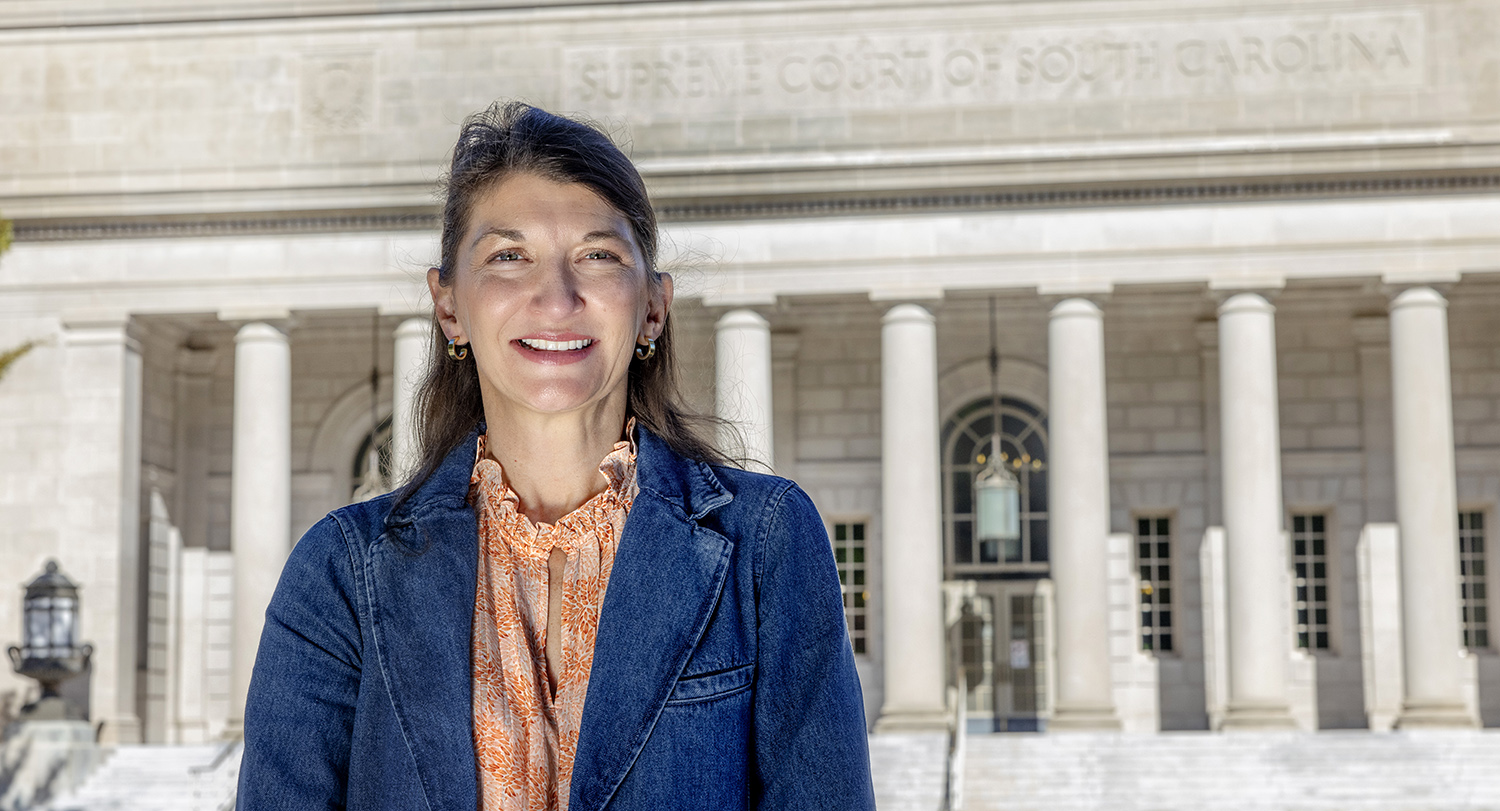
Forensic social work is a specific discipline that examines how social workers intersect and interact with the legal system under domains both criminal and civil.
Stephanie Hunter has 22 years of experience in the field, specifically working in criminal indigent defense. Now an assistant clinical professor at USC’s College of Social Work, she finds that both students and professionals often require an explanation about the field.
“When offered an overview of this niche within our discipline, some say, ‘Well, I do that a little bit, but I never thought of it as forensic social work,’” she says. “I’m really looking to amplify and elevate all the areas that go into forensic social work.”
When people think of forensic social work, they think of mental health competency evaluations that assess whether someone is capable to stand trial.
“They might consider legal defenses with respect to mental health, and that's a part of it, but it hardly encompasses the field at large,” Hunter says.
Forensic social workers are needed in criminal and civil courts at both the state and federal levels.
In Hunter’s area of social work, she is building a social history for an individual who is facing a murder charge or who has already been convicted and sentenced. Her work as a capital mitigation specialist can play a role at any point from pre-trial through clemency.
“This is investigating the life story of the person who's charged with a capital crime,” Hunter says. “My job is to help a jury understand who that person is and what led them to such an offense. The United States Supreme Court requires this work be done.”
“I tell my students that doctors use stethoscopes as their instruments and we use ourselves. We are the instrument. We have to really be in tune and in touch with our instrument. We do that through self-reflection.”
Hunter, a North Carolina native, has experience in state-level cases across the Carolinas, and within the federal court system across the southeast.
Oftentimes, the people she represents interfaced with both civil and criminal courts in the past. This means Hunter spends a lot of time in courthouses gathering records from prior cases such as divorce or child welfare proceedings.
Social work can also intersect with civil law in many ways, from negotiating parental rights to immigration law. There are adoption social workers who work in family court, which can include child welfare laws.
Hunter says all this work stems from “accepting and understanding that each person comes with their own set of experiences. When someone finds themselves involved in the legal system, it is often frightening and stressful, and this is where social work advocacy is critical.
“I come into it with this curious spirit of what I might be able to learn from that person.”
Introducing herself to students, whether at the undergraduate or graduate level, is something she sees as equal to the way she enters relationships with clients, with friends or meeting anyone where they are.
Hunter sees self-reflection as an essential component to learning. “One of the ways that I seek to mentor students – and how I respond to mentorship – is the ability to dig deep and being asked to self-reflect.
“I tell my students that doctors use stethoscopes as their instruments and we use ourselves. We are the instrument. We have to really be in tune and in touch with our instrument. We do that through self-reflection.”
Hunter says there are numerous causes she would like to be involved in but it’s not possible to devote the time. “Then I’ll look at my classroom and ask what their interests are, and I’m delighted that I get to be a part of so much advocacy through them,” she says.
“They’re working in the school system, in child welfare, in hospitals. They’re working on dismantling racial inequities and systemic oppression. They are creating community supports. It takes each of them to make a brighter world,” she says. “The collaborative spirit is what I'm really excited about.”
In her new faculty role at USC, she envisions partnering the College of Social Work with the Joseph F. Rice School of Law to mobilize students and the community to understand exactly what happens in the courtroom.
“The criminal legal system, particularly issues of sentencing, are polarizing topics,” she says. “But when we talk about its nuts and bolts, research shows how individuals, wherever they fall on the polarization, do typically respond to the fundamental element of fairness.”
Hunter says the policies and practices of the legal system require education and understanding for people to fully appreciate the complexity.
“There are so many causes in need of social workers,” Hunter says, “and it’s a privilege to see students become changemakers in this beautiful, messy world.”